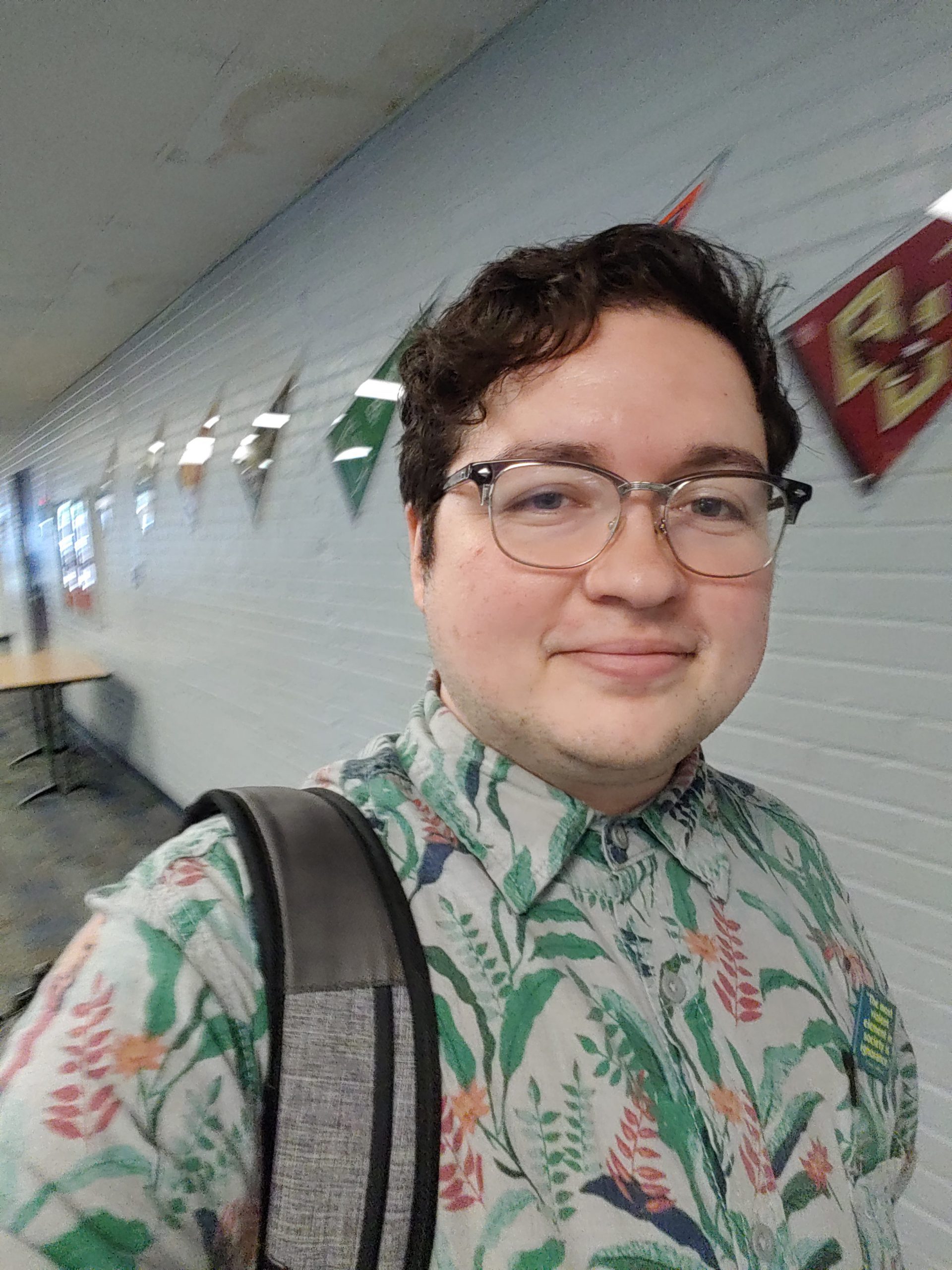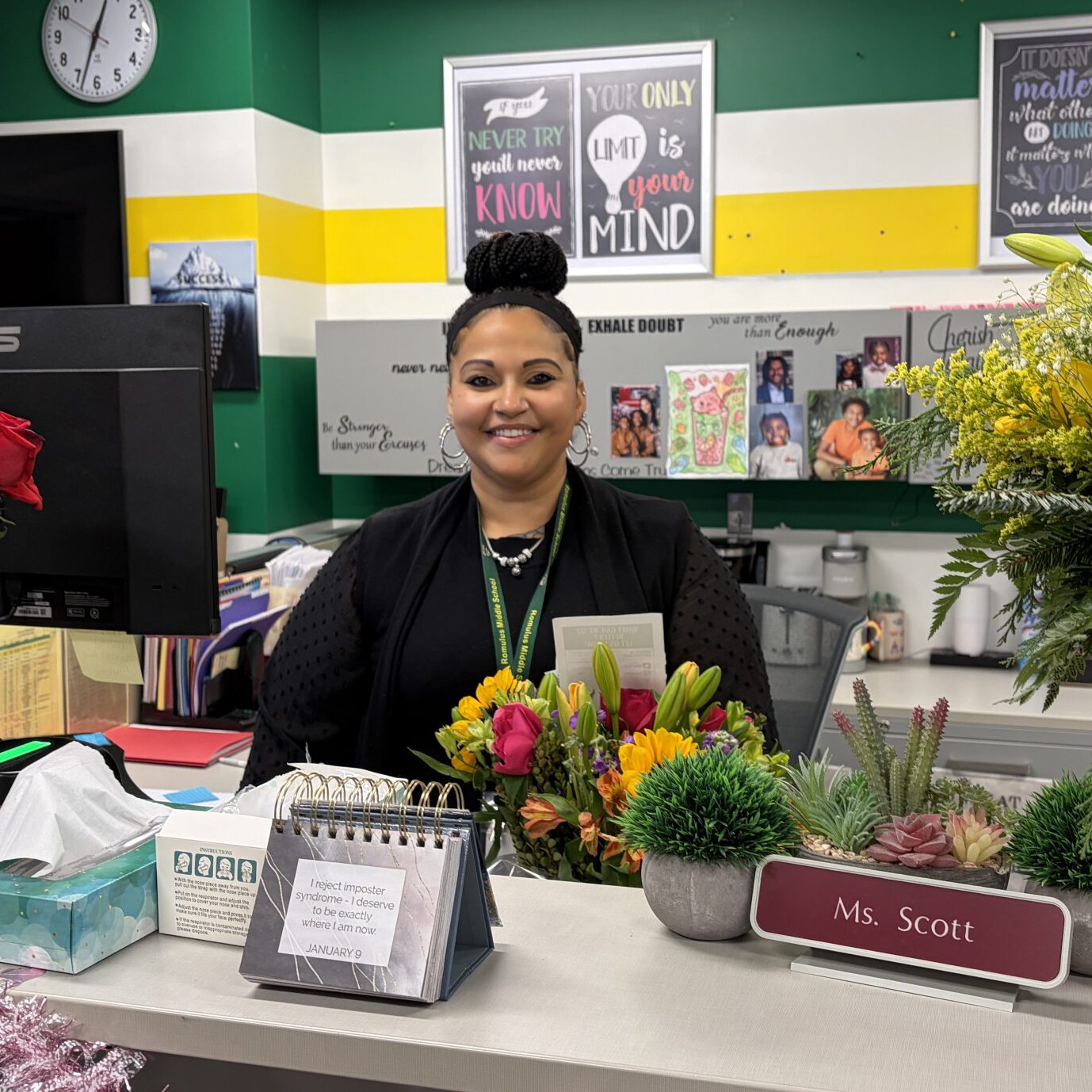Expanded Conference Draws Aspiring and Early Career Educators
MEA member Owen Bondono may have been the keynote speaker at MEA’s Aspiring and Early Career Educator conference in March, but Michigan’s reigning top teacher began his speech by acknowledging he just as easily could have been an attendee.
“I have now had the honor and privilege and terrifying responsibility of being Michigan Teacher of the Year for 246 days, not that I’m counting or anything,” he quipped. “And it feels weird to be in front of you giving advice, I’m not going to lie. This is my sixth year of teaching.”

Then he went on to rock the virtual meeting with an address – at turns both practical and emotionally moving – that drew chills and cheers in the chat.
Given the reality of Zoom fatigue, the five-hour conference packed a lot into a short time. More than 100 aspiring and early career educators attended the event, which was newly expanded this year to include content relevant to educators in pre-service up to the first 10 years of their career.
Session topics ranged from landing a job to working with children with behavior difficulties, self-care, civic engagement, diversity and inclusion, and creativity.
Presenter Christine Rushlow, an MEA member special education teacher in Plymouth-Canton, shared more than 10 tips for understanding, preventing, and addressing difficult student behaviors in the classroom.
To begin with, educators must seek to understand the reason behind – or function of – the problem behavior before offering a replacement behavior. “If we’re not addressing the why, the replacement behavior is not going to stick,” she said. “The child is never going to do it, because it doesn’t fulfill the desire.”
In another session, Rep. Lori Stone (D-Warren) – a former elementary teacher and member of the local union in Fitzgerald – discussed ways that public policy shapes classroom life, which makes it important for educators to stay informed and involved in the public arena.
“Even when things didn’t turn out the way I wanted them to, I always felt good knowing I had done everything I could to get involved and try to change things that I knew needed to change,” she said.
The day concluded with a frank and hopeful panel discussion involving several early career educators who are leading a union networking and support program known as MiNE (Michigan New Educators).
MiNE leader and sixth-year special education teacher Anthony Barnes of Kalamazoo Public Schools said he knows many educators have questioned whether they could continue in the profession as this year has been challenging beyond expectations.
“When I feel that way, I go back and think about why I chose this profession. I think about all the teachers that were there for me, and I think about those teachers who helped me learn how to read in third grade. If you can still remember your why, then you can make it another year.”
One of the newest leaders of MiNE, Royal Oak English teacher Colin Campbell, said he finds it frustrating that needs in schools outstrip the resources, but students – and the unique strengths and insights they bring – make it worthwhile.
“It is an amazing thing to witness when you create a space for their brilliances to shine through, and that will keep you coming back every day,” he said.
MEA member Jenna Koehler, a second-year medical occupations teacher in Petoskey, was grateful for the day’s offerings. “It’s been very renewing on the ‘why’ and keeping that passion sparked!” she said.
In group brainstorming sessions known as Action Camps, participants tackled challenges such as how to meet the needs of students with different abilities and ways to make lesson plans interactive and layered.
In an Action Camp on the topic of balancing teaching and health, conference-goer Elena Espinoza shared a tip she learned from more veteran coworkers at East Lansing High School, who told her not to have work email installed on a personal phone.
“I’m a first-year teacher, so I had to learn this one the hard way,” Espinoza said, noting that her desire to help students with problems or questions turned into a problem of her own: “I realized I was checking my email obsessively. I had notifications on, and I would immediately respond to things or feel guilty if I didn’t.”
Making it so she has to go to a computer to log in creates a boundary, she said. Now she lets students know she will respond immediately to emails in the hour before and after school and the wait might be longer at other times – so they know when is the best time to communicate.
“It’s weird to get used to it for a while, but once you do it’s amazing,” she shared. “It has helped so much that I highly, highly recommend it.”
The conference had the right message at the right time after its planned launch was canceled by the pandemic last March, said Annette Christiansen, an MEA professional issues organizer who helped assemble the lineup.
“The participants were engaged, the presenters were excellent, and the keynote by Owen Bondono was inspiring,” Christiansen said.
Bondono, who teaches freshman English Language Arts at Oak Park High School, shared the lessons he’s learned in this early phase of his career. First, he said, given that education centers around community, “Your teaching is as good as the community you cultivate.”
He admitted to being an introvert “with some controlling tendencies thrown in,” which initially made him want to go it alone in the classroom, he said. “This led to a ton of very late nights, very early mornings, and a lot of reinventing wheels, honestly,” he said.
The first thing he had to learn was to collaborate. “Find your teaching squad,” he said. “The best collaborations come when you find your people, and those people may be in your building. They may be people you meet through conferences or through your subject areas, classes, Twitter. Wherever you find them, hang on to them.
“These are your soulmates, whose philosophies and practices line up with your own, and they will support you on this journey to becoming a great educator. They’ll push you when you need to be pushed, and you will become more than collaborators. You will be co-conspirators in this work.”
Students also can be your collaborators, Bondono told the crowd, sharing a story from his first year when he was convinced he needed to be viewed as an authority figure with all of the answers—or else appear weak and easily walked on.
“I learned very quickly that what they walk all over is obvious inauthenticity in the person that I was trying to present to them. They’ll smell that a mile off… so don’t be afraid to ask them what works for them.”
Bondono said he now regularly starts the school year by asking students to write about qualities in teachers they liked best and least to try to understand their needs. And he told the story of a class one year that would start every day attentive and soon turn restless and chatty.
“It seemed like a switch would just flip in the middle of me giving instructions, and they would be talking like I wasn’t even there,” he said. “I didn’t understand what was happening, so I decided to have a class discussion.”
When he learned some students felt impatient listening to re-explanations for those who didn’t understand, he and the class devised a solution involving laminated cards – red on one side, green on the other – to better target his help in that class.
Students respect educators who own up to their mistakes, he said. “Not only do we need to see all of our students in all of their complex and varied humanity, they need to see that in us as well.”
Bondono had a similarly empathetic view of “burned-out” educators who might speak cynically in the faculty lounge. “Teacher burnout, really, is a defense mechanism to guard against heartbreak… so treat that person with empathy and respect for the battles they have fought.”
However, he added, do not spend too much time around negative people but instead seek out new challenges and opportunities that alternately cause feelings of excitement and fear. “Your job is to guard your own energy; you can sustain a career, I promise.”
Most importantly, be yourself, he added. At the beginning of his career, Bondono was not out to students as a transgender person, but he felt an increasing sense of guilt because “I knew I wasn’t being the teacher that I needed when I was in high school.”
After talking with his local union leaders and administration, Bondono now shares with students about his journey as a queer person. The moment he knew he’d made the right decision came within one month, when a student lingered after class to talk, he said.
“She comes up to me and she sounds kind of taken aback. And she says, ‘I can’t believe that you just said you’re bisexual.’ I said, ‘Well, I am.’ And she said, ‘Yeah, but you just said it like it’s no big deal.’ And I said, ‘It’s not a big deal.’ And she said, ‘You just said it like it’s a normal thing.’
“And she’s getting more and more worked up. And I said, ‘It is a normal thing.’ She said, ‘You just said it like you’re not ashamed.’ And I said, ‘I’m not ashamed.’ And there was a pause, a moment of silence. And then she said, ‘I think I’m still ashamed.’”
Over the course of that school year, Bondono said he got to watch that student explore an authentic version of herself in his classroom that “maybe she didn’t have the space to explore anywhere else in her life.”
All educators teach the same thing, “and that is students. Students who want us to connect with them and want to connect with us. So start there, and everything else will follow.”



